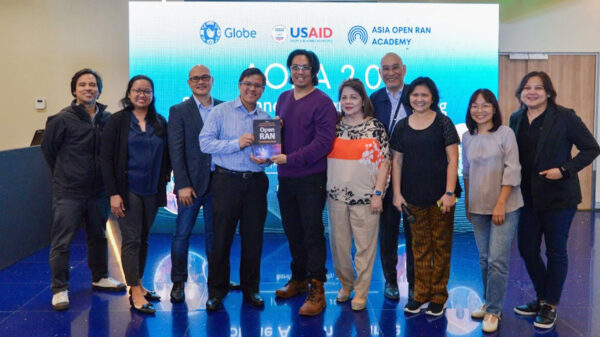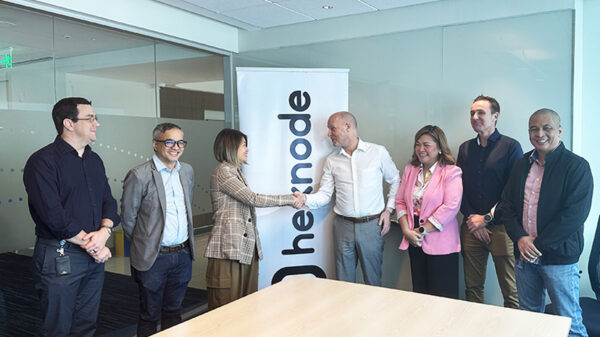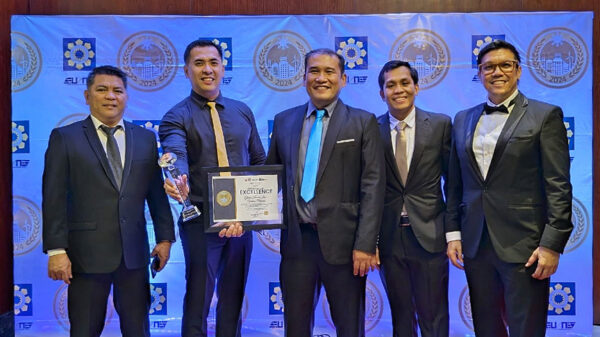The digital intelligence quotient (DQ) of Filipino youth is lower than the global average, according to the 2018 DQ Impact Report, released by Globe Telecom, in partnership with the DQ Institute, an international think tank.
The initial results of the 2018 DQ World study, a first in the Philippines that was presented to the World Economic Forum in Davos, Switzerland last February 2018. The study measures the digital intelligence quotient (DQ) of Filipino youth through pilot surveys in public schools around the country. It serves as a benchmark to nurture and improve the digital intelligence of the nation. Globe worked closely with the Department of Education (DepEd) to roll out the survey in 12 Global Filipino Schools (GFS).
The PH 2018 DQ study showed that the country’s screen time management score stands at 96 lower than the global average of 100. The score is the first step in determining the country index, representing one of eight areas of digital citizenship education that Filipino students must complete in order to determine the Philippines DQ index. The screen time score measures how children age 8-12 manage one’s screen time, multi-tasking, participation in online games and using social media with self-control. A score of 100-115 means children are more responsible and has moderated use of the internet. A score below 85 means children can be potentially exposed to one or more cyber-risks or exhibiting unhealthy habits of digital usage. The aspiration is to have a screen time management score of above 115 which means children can be considered as relatively disciplined users of digital media and technology.
Aside from screen time management, the other areas of digital citizenship education to complete the country’s DQ index include digital citizen identity, privacy management, critical thinking, digital footprints, digital empathy, cyber security management and cyber-bullying management. Since the Filipino students’ screen time management is lower than average, it is recommended that students learn about safe digital use before they own any mobile device or actively engage in digital media.
The study also showed that the average Filipino child spends about 34 hours per week in front of digital screens for entertainment alone, 2 hours higher than the global average. About 53% of the students access the internet through their own personal mobile phones, while 41% access the internet through their family computers. Among the top activities cited are watching videos, using a search engine, playing games, listening to music and creating social media profiles.
“In building a digital nation, it is important to have a deeper understanding on the impacts of technology to Filipino youth and provide proper interventions to address these. The Globe Digital Thumbprint Program (DTP) is one of many initiatives that can help prepare the youth for more responsible use of the internet. Working with the DQ Institute and the DepED, we are hopeful that the Philippines will soon join the roster of countries with high DQ index in the future,” said Yoly Crisanto, Globe Senior Vice President for Corporate Communications.
The study further revealed that up to 73% of Filipino children are exposed to cyber-risks, including cyber-bullying, inappropriate active searches, gaming addiction, meeting strangers online, online sexual content, inappropriate adult images and inappropriate sexual talking. This is higher than the global average of 56%. Involving 3,819 primary public and private school students, the study profiled the students’ level of access to devices and the internet, types of online activities they are involved in, and their susceptibility to cyber-risks.
Aspiring to achieve the goal score, Globe expanded its two key programs, the Global Filipino Schools (GFS) and the Digital Thumbprint Program (DTP) to help build a safe support network for every Filipino child. Under the program, students and teachers are provided free training workshops on responsible digital citizenship that covers online safety and security, online etiquette and responsibility, online leadership and empowerment, and discernment to effectively identify false information from credible sources online.
DQ is defined as the sum of technical, mental and social competencies essential to digital life. It encompasses the skills and values that are needed to thrive as responsible netizens to answer the demands of the digital era. These skills empower citizens to have ethical and responsible use of technology, an attribute that marks the leaders of tomorrow.
















































































































